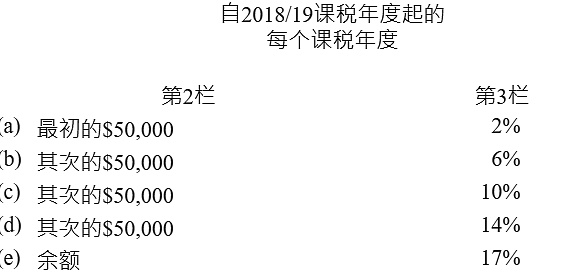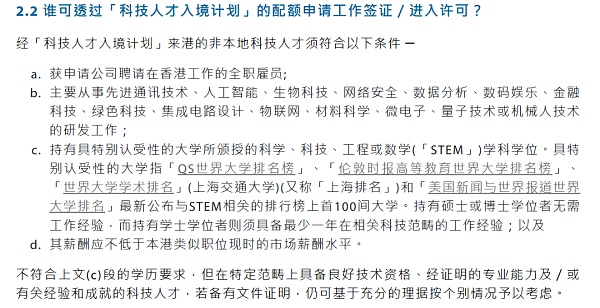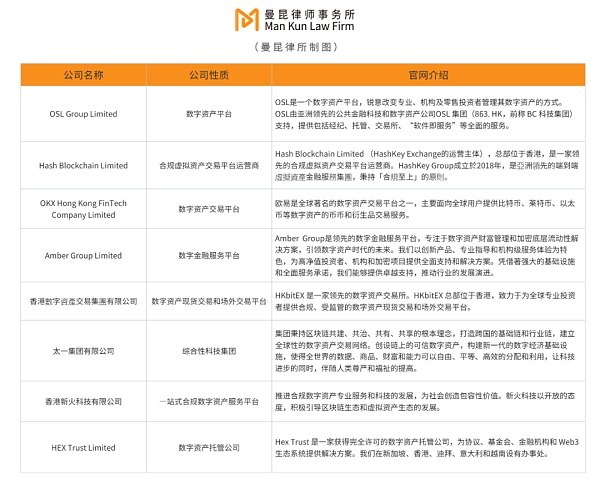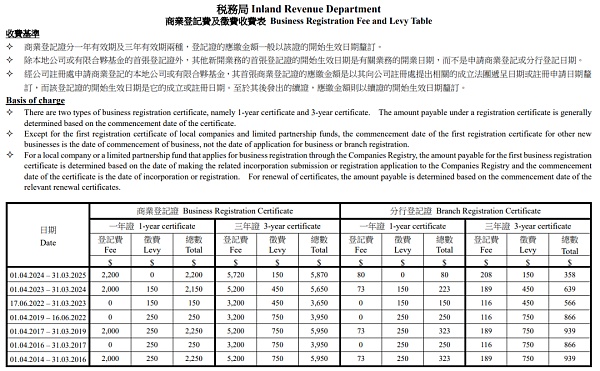Source: Lawyer Liu Honglin
Hong Kong has always been an international financial center, business center and shipping center due to its location, history and "one country, two systems" advantages. It plays an important role in the global financial market. Hong Kong has a sound financial system and complete financial infrastructure, a large financial market, a stable legal system and a transparent and independent judicial system, which has opened up a stable business environment and a profitable institutional framework for the development of the financial industry.
On the basis of traditional financial advantages, with the efforts and layout of the Hong Kong government on Web3 in the past two years, the development of Web3 companies in Hong Kong has become more attractive.
01 Advantages enjoyed by Web3 companies in Hong Kong
(I) Traditional advantages
Locational advantages. Hong Kong is an important gateway to the inland areas of my country. As a world-renowned international shipping center, Hong Kong has a unique geographical location. Hong Kong is located at the southern end of the East Asian continent and in the middle of Asia, connecting the Pacific Ocean and the Indian Ocean. It is a transportation hub in Southeast Asia. At the same time, Hong Kong is backed by my country's vast inland areas and faces the international market, allowing companies in Hong Kong to take into account the Chinese inland market, the Southeast Asian market, and the European and American markets. Hong Kong's superior geographical location provides Web3 companies with a gateway to the Asian market.
Institutional advantages. Hong Kong returned to the motherland on July 1, 1997, and the Basic Law of the Hong Kong Special Administrative Region of the People's Republic of China was implemented on the same day. Under the protection of the "two systems", Hong Kong has continued its past free economic policies. The Hong Kong dollar is pegged to the US dollar, the financial market is open, entry and exit are relatively free and simple, it is fully integrated with the international commercial market, and the policy formulation is highly autonomous. It can sign economic and trade agreements as an independent customs area and become an important platform for business exchanges between the mainland and foreign countries.
Capital market advantages. Hong Kong provides a series of favorable conditions for enterprises, especially in terms of international capital and foreign exchange controls. Hong Kong's international capital market is very mature and can provide diversified financing channels. Hong Kong has no foreign exchange controls, which means that funds can flow in and out freely, providing great flexibility for companies to allocate funds globally. This is a huge advantage for Web3 companies seeking capital expansion, providing them with a good financing environment.
Legal advantages. Hong Kong also has a solid legal system and a transparent and independent judiciary, which has opened up a solid business environment and a profit-making institutional framework for the development of Web3 companies, and also pointed out the direction for the compliance operation of Web3 companies.
(II) Tax advantages
Hong Kong's lower tax rate and simple tax structure are also one of the reasons why many companies flock to it. Hong Kong adopts the principle of territorial source taxation, and only taxes income/profits from Hong Kong, while income/profits from outside Hong Kong are generally not subject to tax in Hong Kong.
As far as Web3 companies are concerned, there are two main types of taxes involved in their business development, one is profit tax and the other is salary tax.
Profit tax. The nature of profits tax is similar to corporate income tax in mainland China. Companies operating in Hong Kong need to pay profits tax for the taxable year on their assessable profits generated in or derived from Hong Kong in the relevant year. Hong Kong has a low profits tax rate, with only 8.25% tax rate on the first HKD 2 million of profits, and 16.5% tax rate on the excess, which is a significant tax advantage for companies with higher profits. Dividends received by shareholders of Hong Kong companies from companies that need to pay profits tax are exempt from tax, while natural person shareholders in mainland China need to pay 20% personal income tax on dividends from companies.

Salaries tax. Similar to the need for individuals in mainland China to pay salary income tax, taxpayers need to pay salaries tax on their income generated in or derived from Hong Kong during the tax year when they are employed or employed in Hong Kong. Since 2018, salary tax has been levied at a progressive tax rate of 2%-17% in five marginal tax brackets, or the tax payable is calculated at a standard tax rate of 15%.

In addition, if a Web3 company registered in Hong Kong wants to transfer equity, it also needs to pay stamp duty. The stamp duty for equity transfer is calculated based on the ad valorem method, generally 0.1% of the equity price or company value. The taxpayers of stamp duty are the transferor and transferee of the company's equity.

(III) Talent advantage
The Hong Kong government has launched the Hong Kong Science and Technology Talent Admission Scheme. The core of the program is to import overseas and mainland technology talents to eligible companies and attract them to Hong Kong to engage in R&D work. Eligible companies can first apply for quotas. Companies that are issued quotas can apply for work visas or entry permits for qualified technology talents within the 24-month quota validity period. Applicants for the Technology Talent Admission Scheme should be engaged in R&D work in advanced communication technology, artificial intelligence, biotechnology, network security, data analysis, digital entertainment, financial technology, green technology, integrated circuit design, Internet of Things, materials science, microelectronics, quantum technology or robotics technology. The Hong Kong Technology Talent Admission Scheme provides a high-quality source of talent for Web3 companies.

(IV) Government's attitude towards encouraging Web3
On October 31, 2022, the Hong Kong government issued the "Policy Statement on the Development of Virtual Assets in Hong Kong". The declaration shows that the Hong Kong government holds an open and inclusive attitude towards innovation in virtual asset businesses around the world. The government said it will work with financial regulators to create a convenient and sustainable development environment for virtual assets and reduce the resistance and risks to the innovative development of virtual assets.
On December 7, 2022, the Hong Kong Legislative Council passed the Anti-Money Laundering and Counter-Terrorist Financing (Amendment) Ordinance 2022, which stipulates that the virtual asset service provider licensing system (VASP system) will be officially implemented from June 1, 2023. In addition, the Ordinance also clarifies the application, prohibited content, regulatory objectives, sanctions schemes, and transitional arrangements for virtual asset service provider licenses.
On January 31, 2023, the Hong Kong Monetary Authority issued the "Conclusions on the Discussion Paper on Crypto Assets and Stablecoins". The document roughly explains the regulatory model, regulated entities, regulatory principles, implementation time, etc. of stablecoins.
On February 28, 2024, the Hong Kong government issued a public consultation document on the "Legislative Proposals on the Regulation of Over-the-Counter Transactions of Virtual Assets", consulting on legislative proposals for the establishment of a licensing system for virtual asset over-the-counter (OTC) providers.
On April 15, 2024, the Hong Kong Securities and Futures Commission (hereinafter referred to as the "Hong Kong Securities and Futures Commission") approved Harvest Global, Bosera Funds (International) and China Asset Management (Hong Kong) to issue six Bitcoin and Ethereum spot ETFs, which are scheduled to be listed and traded on April 30, 2024. On April 30, 2024, the Hong Kong Stock Exchange launched six Bitcoin and Ethereum ETFs on time. At the close of the day, the total trading volume of the first six crypto asset spot ETFs issued in Hong Kong was approximately HK$87.58 million (US$12 million).
The Hong Kong Securities and Futures Commission is one of the first few regulators in major jurisdictions to introduce a comprehensive regulatory regime for virtual asset-related activities. The Hong Kong Securities and Futures Commission's regulatory philosophy is based on the primary principle of "same business, same risks, same rules".
The SFC-licensed or registered intermediaries related to virtual assets regulated by the SFC include: virtual asset trading platform operators, virtual asset fund managers, intermediaries that trade or provide advice on virtual assets, and intermediaries that distribute virtual asset-related products.
The Hong Kong government has been committed to building an innovation center in the field of blockchain and digital assets. The Hong Kong SAR government established the "Cyberport Web3 Base" in January 2023 and allocated HK$50 million in the budget to accelerate the development of the Web3 ecosystem. Cyberport is an innovative digital community managed by Hong Kong Cyberport Management Company Limited, which is wholly owned by the Hong Kong SAR government. At the same time, the Hong Kong government provides abundant financial support and subsidies through programs such as the Cyberport Accelerator Support Program, the Cyberport Creative WeChat Fund (CCMF), and the Cyberport Investment and Entrepreneurship Fund. Such financial incentives are a huge attraction for start-ups.
In summary, Hong Kong's geographical location, policy support, fiscal and taxation policies, capital markets, and talent pools together constitute a strong reason for Web3 companies to register in Hong Kong. These factors not only promote the development of Web3 companies, but also bring vitality to Hong Kong's technological innovation ecosystem.
02 Inventory of Web3 companies registered in Hong Kong
The following are some cases of Web3 companies that have successfully registered and developed in Hong Kong. They each have demonstrated unique strengths and innovations in the field of blockchain technology and digital asset services.

03 Hong Kong company registration process and fees
In terms of registered capital, the threshold for company registration in Hong Kong is low, and there is no requirement for minimum registered capital, nor is there a need for actual verification of registered capital, which reduces the initial cost of the enterprise. Hong Kong also provides a large degree of freedom in the company name and business scope, with almost no restrictions, which helps enterprises to flexibly adjust according to their own development needs. As an internationally renowned business center, companies registered in Hong Kong can enhance their international image, increase the trust of partners, and are conducive to the establishment and promotion of corporate brands.
In terms of company management, the directors of Hong Kong companies can be natural persons and corporate bodies. Hong Kong laws and regulations do not restrict the nationality of company directors, nor do they require directors to hold a specific number of shares. However, the company directors must be at least 18 years old.
There are many types of companies to choose from in Hong Kong, including sole proprietorship, partnership, and limited liability company. Among them, limited liability companies include private limited companies, public limited companies, guarantee companies, branches, subsidiaries or representative offices.
Under the one-stop company registration and business registration service provided by the Hong Kong government, anyone can submit materials to the Hong Kong Companies Registry to establish a local company or a non-Hong Kong company.
(i) Local companies
According to the information published on the official website of the Hong Kong Companies Registry, the materials required to be submitted for establishing a local company in Hong Kong include:
Incorporation form
Copy of the company's articles of association
Notice to the Business Registration Office
State whether a three-year registration certificate is elected
(ii) Non-Hong Kong companies
According to the Companies Ordinance (Chapter 622) of Hong Kong, a non-Hong Kong company refers to a company incorporated outside Hong Kong and meets the following requirements: (a) it has established a place of business in Hong Kong on or after the date on which Part 16 comes into effect; or (b) it has established a place of business in Hong Kong before that date and continues to have a place of business in Hong Kong on that date.
According to the information published on the official website of the Hong Kong Companies Registry, the materials required to be submitted for the establishment of a non-Hong Kong company in Hong Kong include:
Application for registration of a non-Hong Kong company
Notice to the Business Registration Office
State whether the company has been registered under the Business Registration Ordinance (Chapter 310): (a) If registered, state its business registration number (b) If not registered, state whether a three-year registration certificate is selected and state: Business name (if different from corporate name) Business description and nature of business, date of commencement
(III) Official Fee Standards (Applicable to Local Companies and Non-Hong Kong Companies)

04 Summary
Hong Kong has a unique geographical location and market advantages, and has always been the most important international financial center in Asia. In the development of the Web3 industry, the Hong Kong government and financial regulatory agencies have adopted an open and compatible attitude, encouraging Web3 companies to use financial technology to develop their own businesses in an inclusive and innovative market environment in accordance with detailed and detailed regulatory rules. These have created a good environment for the operation and development of Web3 companies. Therefore, with the above foundation, it is not surprising that Web3 companies are clustered in Hong Kong.
 JinseFinance
JinseFinance











